Why the lockdown could be just what the environment needs
Now in our third week of the not quite a lockdown, lockdown, we’re all aware of the personal challenges we’re facing, but what about the positives. Is there more to gain than lose from this experience and how can we maintain the benefits? Chris Rigby, a councillor and a longstanding environmental activist discusses more.
You don’t have to look far to see how restricting people’s movements have had a positive impact on the environment, You do however have to seek out news coverage a bit more than the climate change articles which had been getting more and more prevalent since the large Extinction Rebellion protests in April 2019 and now have all but been replaced with articles about the virus.
The restrictions on what people can, and cannot do has seen travel companies grounding their fleets of planes, my closest airport, Bournemouth, currently has approximately £1billion worth of planes parked up, including up to 10% of the British Airways fleet. The sound of traffic passing my open window has all but disappeared, occasional delivery vehicles are pretty much limited to those supplying supermarkets and other grocery shops, and a large proportion of people, including myself, are now able to work from home when we’ve previously been told that this wouldn’t be possible. Others, less fortunate, are unable to work at all, with the Government planning to pay up to 80% of their wages.
These reduced levels of transport has seen a reduction in air pollution across the UK, early data sets show large cities have seen decreases of a third to a half in tiny particle pollution and similar decreases in Nitrogen dioxide (NO2) levels. When you consider that in London alone air pollution is held responsible for 9,400 extra deaths a year and globally up to 7million people annually, it may be that if we maintain lower air pollution levels post this pandemic we may save more lives through cleaner air than are lost to the virus.
A study from Stamford University suggests that 20 times more lives may be saved in reduced air pollution deaths than are lost to Covid_19. It calculates calculate that having 2 months of 10ug/m3 reductions in pollutants of less than 2.5micrometers likely has saved the lives of 4,000 kids under 5 and 73,000 adults over 70 in China. Whilst I in no way want to trivialise the number of lives lost during this crisis, it is important to consider what we normally dismiss as the hidden health costs of the status quo.
The reduction in emissions from vehicles and the drop in air pollution is only one benefit of our way of life having to change so suddenly and sharply. The second benefit is the reduction in greenhouse gasses.
This goes hand in hand with the greatly reduced use of transport, and the associated CO2 emissions. However, it also goes further, looking at the data of the UK electricity demand for the year to date, it shows a visible decrease from the start of the UK’s ‘lockdown’ period.
Of course, it’s difficult to take this as read, and it would need to be compared with weather data, and the usual decrease in demand towards summer and increased daylight hours, but on the face of it business closedowns and home working seems to show our energy use decreasing, which again is good for the planet. Tie this into the fact that 2019 saw a third of UK energy produced by renewable resources, and the trend of reduction and more renewable generation looks good for our future.
Consumption culture
But what else for our future. The benefits of “lockdown life” will be short lived and as we return to life as normal, this will just be a blip on the global pollution levels surely? A poster which went up across the East Midlands bearing Extinction Rebellion’s logo, but which Extinction Rebellion itself rightly rejected, bore a message stating “Corona is the cure, humans are the disease”.
This isn’t the first time I’ve seen or read something like this, with a lot of people quick to say, “When humans can’t do anything the planet recovers”. Be this the canals in Venice clearing up and dolphins swimming off the coast, or deer and monkeys entering cities in Japan and Thailand, all the sea turtles reclaiming Brazils’ usually crowded beaches, or closer to home Llandudno’s goats venturing into the town, nature is quick to reclaim where humans have built.
However, the population of humans hasn’t dropped in spite of the Covid_19 related deaths, and claiming that humans are a disease to be cured is nothing short of eco-fascism which needs stamping out should it be used to undermine the greater environmental movement.
It’s what humans are doing that has changed, we’ve stopped consuming, stopped moving around, stopped with needless journeys and refocussed our ability to work in our own homes. Businesses have temporarily closed their doors, town centres and retail parks are desolate, manufacturing has reduced to the essentials. We as people are perhaps realising we need less to live, in fact maybe what we view as our previous status quo is not where we need to return to.
There is perhaps something else which we can call a disease and one which is currently struggling to maintain its grip on society, one which is asking for government bail outs, whilst simultaneously laying off staff, not paying suppliers, and their owners harbouring wealth in the billions of pounds. Maybe humanity is seeing capitalism for what it is, something which has been exploiting the many for the gain of the few.
When we know the richest 1% own 44% of the world’s wealth, or to put this into another perspective, the 10 richest men own more wealth between them than Switzerland’s entire GDP, maybe it’s time for system change.
We can also relate this to the environment, with the world’s richest 10% producing half of the global greenhouse emissions while the poorest 3.5billion produce just 10%, showing not just financial inequality, but carbon inequality too.
What next?
So where does this leave us? Where do we see ourselves after this lockdown? What are we missing? Using the only option currently available to me to ask a broad spectrum of people, I turned to social media, and the answers although different in some aspects were all similar in others. Seeing friends and family, hugs and human contact, going out to the countryside or the beach, going to listen to live music, going to watch the football, going out for a meal, going the local pub, having some time alone, or being able to access some services for health and wellbeing.
It’s stark that whilst singles are practicing the art of virtual dating, couples and others who don’t live together are perfecting sexting and sending nudes, parents just want half an hour of alone time, and those who thrive on socialising go to virtual pub or games nights. None of us when asked what we’re looking forward to; say going to the shops, buying that new thing, taking a holiday or indulging in a new luxury.
We all want that little bit of humanity that has been removed, being able to stretch our legs and be with other people. It’s this small thing that we need to remember when we come out of our lockdowns, see each other again, smile, laugh, hug and kiss friends or strangers that, this is what we long for, not what is being sold to us on a daily basis by big companies.
As once we’re out of lockdown the advertising campaigns will begin, the offers and deals will be tempting, shops and businesses need our custom to survive, and it’s up to us whom we patronise. Remember who now is supporting their staff, who helps us move through this crisis and what they do.
Also remember who lays off their staff, forces them to work in cramped warehouse spaces to continue trading, and who reaches out to take our money from the government to support their business rather than reaching into their own pockets. There are thousands of small independents and self-employed who’ll need your support much more than a Wetherspoon’s or Next. These independents are run by the same people you’re missing right now, who run or frequent your local, who’re your neighbours and friends, and whose businesses support the local economy.
By remembering what’s important to you now, and what you miss now, and taking time to indulge in that once this pandemic is in the past, we can all do our bit to reduce our impact on the environment, without actually doing anything more than we are now, just adding back in those little things we miss that bring us happiness.







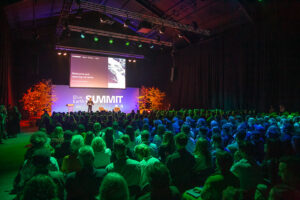
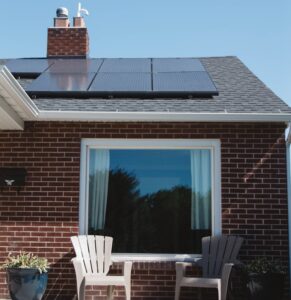
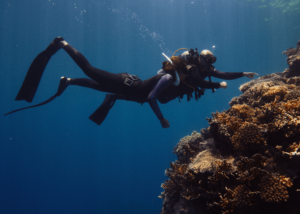
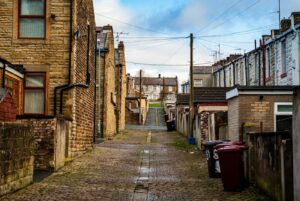
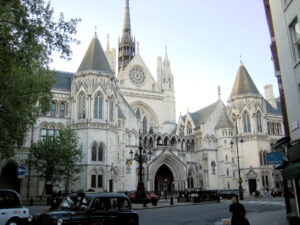

well written.
Even i feel the same. Why the humans are running so fast. just have idea whom they are racing with. why can’t they just earn as much as they need and allow others who are in need?
Why can’t they live in the moment? why always planning and dying everyday to live one day but again no body know when that one day would come